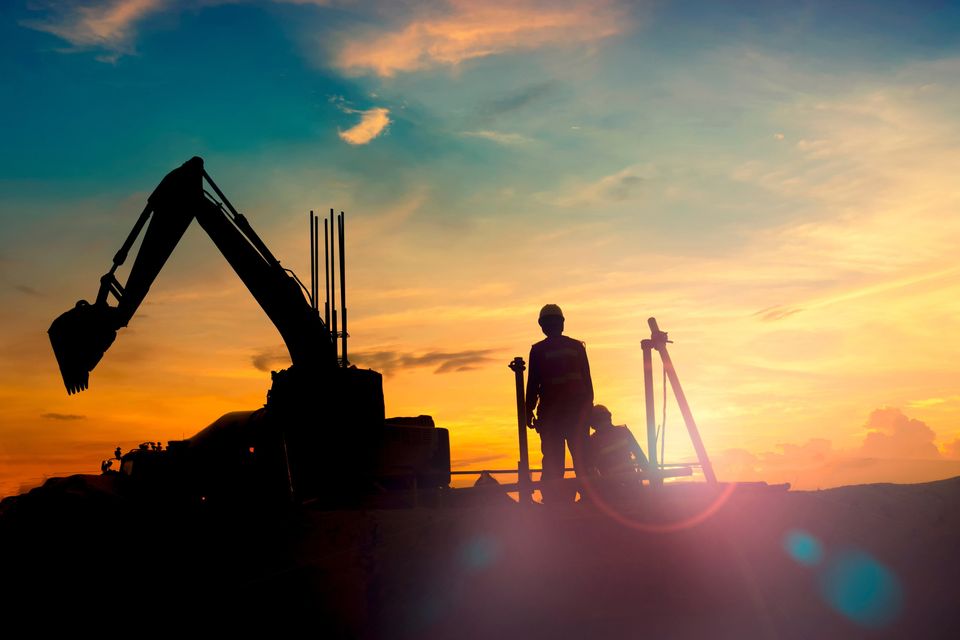
Galway’s Tynagh mine – once one of the biggest employers in the West – could be destined for a new lease of life with plans by its new owner to recover metals from old mining waste and to kick off new mineral exploration in the area. London-listed mining firm Europa Metals, which has acquired the site, has revealed that it plans to conduct exploratory drilling for zinc, lead and silver to upgrade the historical resources at the site. In September, Europa acquired Viridian Metals, which owns the site.
Europa confirmed in a new update to the AIM market in London plans to conduct a feasibility study and apply for an operating licence for a recycling and reclamation project Viridian has developed for the site. Many of these metals are used in the making of batteries. Photo: Getty Tynagh was the first large-base metal discovery in Ireland and was operated as an open-pit lead and zinc mine after it was opened by taoiseach Jack Lynch in 1968.
It employed 350 people until it was shut down in 1981. Apart from the major employment blow, the dormant mine was in the following years the subject of environmental concern because of the impact of the open-cast mining undertaken. Viridian Metals, who subsequently acquired the site, has since developed ambitious plans for a waste-recycling and rehabilitation project utilising the waste tailings left behind by the mining work.
The oxidised material mined at Tynagh and limited processing technology at the time had led to poor recovery of the metals, resulting in a high-grade tailings product, it outlined in a new financial update. The firm was ‘considering the use of solar and wind generation at the site to power the recycling operation’ “It is envisaged that Europa will undertake the necessary requirements to conclude a definitive feasibility study and apply for an operating for the recycle and reclamation project,” the firm said. When contacted, Europa said that it could not comment further on its plans at this time because the acquisition process was ongoing and would take several months.
But in an update on its plans last year, Viridian CEO, mining and finance industry veteran Julian Vickers, said construction of the recycling project could begin next year. He said the waste tailings that remain at the brownfield Tynagh site could contain up to €1bn worth of metals. Demand for zinc and other similar metals has risen strongly because of their use in batteries.
The mines were opened by taoiseach Jack Lynch in 1964. It employed 350 people until it closed in 1981 Vickers, who is to remain as CEO of the firm after the completion of the acquisition by Europa, said that the project was a “green” source of increasingly in-demand metals for the energy transition industry and would also rehabilitate the Tynagh site and waste from the process would be placed in a sealed modern tailings facility. The firm was considering the use of solar and wind generation at the site to power the recycling operation and he had outlined how the new process would not require any new mining.
The company has developed a process that uses salt and water in a closed loop on the site. Limited processing tech at the time led to poor recovery of the metals resulting in high-grade tailings In an investor pitch last year, Vickers said that Viridian expected to extract high-value metal waste from seven million tonnes of tailings from the previous mining operations to recover 90,000 tonnes of zinc, 45,000 tonnes of lead, as well as 4 million ounces of silver for use in batteries and other industrial uses. It believes that the project could save 350,000 tonnes of carbon by recovering metal that otherwise would be mined.
Part of the business proposal of the recycling is to sell an equivalent carbon credit based on this, it said. At the time, Viridian was seeking investment of €3.5m of equity financing in return for a 25pc interest in Viridian Metals and this funding was expected to fund the project as far as “a construction decision”, with further funding required beyond that.
.














